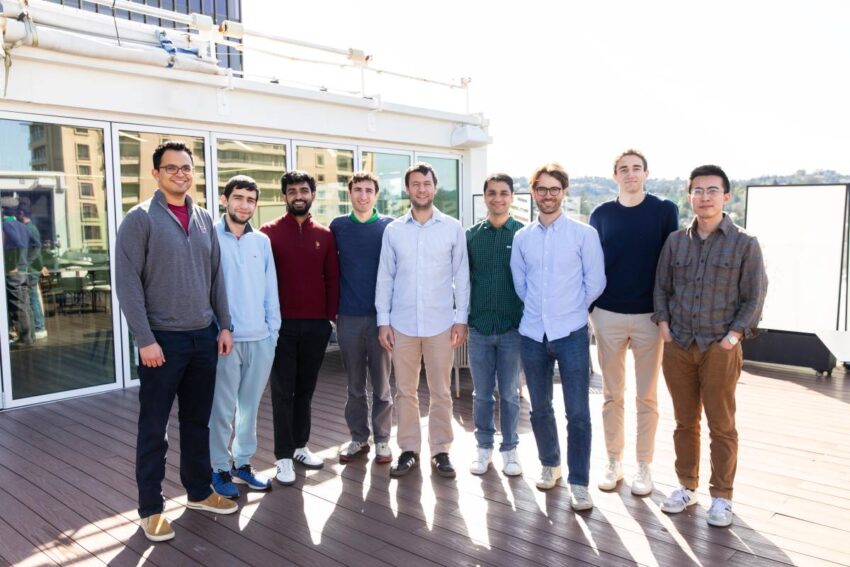
inception raises 50 million to build diffusion Inception, a technology startup, has successfully raised $50 million in funding to develop diffusion models aimed at enhancing software development processes.
inception raises 50 million to build diffusion
Understanding Diffusion Models
Diffusion models are a class of generative models that have gained significant traction in recent years, particularly in the realm of artificial intelligence (AI). These models work by gradually transforming random noise into coherent data, making them particularly effective for generating high-quality images. They have been instrumental in powering various AI image generators, such as DALL-E and Stable Diffusion, which have showcased their ability to create stunning visuals from textual descriptions.
However, Inception believes that the potential of diffusion models extends far beyond image generation. The startup aims to harness these models to revolutionize software development, an area that has seen relatively slow advancements in AI integration compared to other fields. By applying diffusion models to code and text, Inception hopes to streamline the development process, enhance productivity, and ultimately improve the quality of software products.
Funding and Investor Confidence
The $50 million funding round was led by prominent venture capital firms, signaling strong investor confidence in Inception’s vision and technology. This investment will allow the company to expand its research and development efforts, hire top talent, and accelerate the deployment of its innovative solutions in the software development landscape.
Investors are increasingly recognizing the transformative potential of AI in various sectors, and software development is no exception. The ability to automate coding tasks, generate documentation, and even debug code using advanced AI models could significantly reduce the time and effort required for software development projects. Inception’s focus on diffusion models positions it at the forefront of this technological shift.
Applications of Diffusion Models in Software Development
Inception’s approach to applying diffusion models in software development encompasses several key areas:
- Code Generation: One of the most promising applications of diffusion models is in the automatic generation of code. By training on vast datasets of existing code, these models can learn patterns and best practices, enabling them to generate new code snippets based on user specifications. This could drastically reduce the time developers spend on routine coding tasks.
- Documentation Creation: Writing documentation is often seen as a tedious but necessary part of software development. Diffusion models can assist in generating clear and concise documentation based on the code itself, ensuring that it is always up-to-date and reflective of the latest changes.
- Code Review and Debugging: Diffusion models can also be employed to analyze code for potential errors or inefficiencies. By understanding the structure and logic of code, these models can suggest improvements or highlight areas that may lead to bugs, thereby enhancing the overall quality of the software.
- Natural Language Processing (NLP): In addition to code, diffusion models can be used to process and generate natural language text. This capability can be leveraged for creating user interfaces, chatbots, and other applications that require seamless interaction between users and software.
Challenges and Considerations
While the potential applications of diffusion models in software development are exciting, there are several challenges and considerations that Inception and the broader tech community must address:
Data Quality and Availability
The effectiveness of diffusion models is heavily reliant on the quality and diversity of the training data. In the context of software development, this means having access to extensive repositories of code, documentation, and related materials. Ensuring that the data used to train these models is representative of real-world coding practices is crucial for achieving reliable results.
Ethical Implications
As with any AI technology, the deployment of diffusion models in software development raises ethical questions. Issues such as code ownership, intellectual property rights, and the potential for bias in generated code must be carefully considered. Inception will need to establish clear guidelines and practices to address these concerns and ensure responsible use of its technology.
Integration with Existing Tools
For diffusion models to be truly effective in software development, they must be seamlessly integrated into existing development environments and workflows. This requires collaboration with established software development tools and platforms, as well as a focus on user experience to ensure that developers can easily adopt and benefit from these new capabilities.
Market Implications
The successful implementation of diffusion models in software development could have far-reaching implications for the industry. As AI continues to evolve, the demand for skilled developers may shift, with a greater emphasis on overseeing and managing AI-driven processes rather than traditional coding tasks. This could lead to a redefinition of roles within development teams, as well as changes in educational programs aimed at training the next generation of software engineers.
Moreover, companies that adopt these advanced AI tools may gain a competitive edge by significantly reducing development time and costs. This could lead to faster product releases and increased innovation, ultimately benefiting consumers and businesses alike.
Stakeholder Reactions
The funding announcement has generated a variety of reactions from stakeholders within the tech community:
Investors
Investors have expressed enthusiasm about Inception’s potential to disrupt the software development landscape. Many see the application of diffusion models as a natural evolution in AI technology, with the potential to unlock new efficiencies and capabilities. The significant investment reflects a growing belief that AI can fundamentally change how software is developed and maintained.
Developers
Reactions from software developers have been mixed. While some are excited about the prospect of AI tools that can alleviate mundane tasks, others express concerns about job displacement and the reliability of AI-generated code. Developers are keen to see how Inception addresses these concerns and whether its models can genuinely enhance their work rather than replace it.
Industry Experts
Industry experts have noted that the success of Inception’s approach will depend on its ability to navigate the complexities of software development. They emphasize the importance of collaboration between AI and human developers, suggesting that the most effective solutions will be those that augment human capabilities rather than attempt to replace them entirely.
Future Outlook
As Inception embarks on this ambitious journey to develop diffusion models for software development, the company is poised to play a significant role in shaping the future of the industry. The successful application of these models could lead to a paradigm shift in how software is created, maintained, and evolved.
Inception’s commitment to innovation, coupled with the substantial funding it has secured, positions it well to explore uncharted territories in AI and software development. The next few years will be critical as the company works to refine its models, address challenges, and demonstrate the tangible benefits of its technology to the broader market.
In conclusion, the intersection of diffusion models and software development presents a compelling opportunity for innovation. As Inception leads the charge with its recent funding, the tech community will be watching closely to see how these advancements unfold and what they mean for the future of coding and software engineering.
Source: Original report
Was this helpful?
Last Modified: November 6, 2025 at 6:42 pm
2 views















